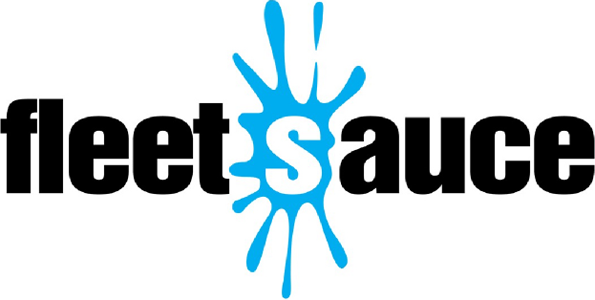
TOP PRIORTIES AS A FLEET MANGER

(Posted on 13/03/24)
Whether your company operates in construction or logistics, the effectiveness of your fleet management strategy profoundly impacts overall success. Efficiently managing and optimising your fleet is paramount for maximising efficiency and achieving success.
Fleet managers encounter a myriad of challenges, particularly amidst economic turbulence stemming from events such as Brexit and the lingering effects of the COVID-19 pandemic. Fuel costs soared in 2022, exacerbating pressures. The industry also grappled with driver shortages, though recent months have seen some relief as fuel prices stabilise. However, the imperative to reduce fleet emissions now looms large, with many companies committing to net-zero targets.
An effective fleet management strategy is the cornerstone of any successful fleet operation. However, it must be tailored to the specific needs of your fleet to truly thrive. In this article, we delve into the essential components that constitute a effective and successful fleet strategy and explore what prioritise are key.
Cost Control
Effective cost management is vital for any fleet, as it directly influences a company's financial health and overall profitability. By mastering the ability to manage and control costs, fleet operations can be optimised, ensuring a sustained competitive edge within the industry.
When considering cost management, fleets must address various expenses, including fuel costs, insurance, accident damages, and maintenance. Each of these expenses presents unique challenges and impacts fleet operations differently.
Fuel constitutes a major expense for any fleet, especially those covering extensive distances. However, in today's context, shifting to electric vehicles offers a practical means to significantly cut fuel costs. Despite the initial higher upfront investment, the long-term benefits are substantial. Charging an electric vehicle comes at a fraction of the cost compared to refuelling a traditional vehicle with similar mileage. That said, challenges like the availability of charging infrastructure and the time it takes to charge vehicles remain noteworthy. For fleets with high mileage demands, the wait time for charging could pose operational challenges. Nevertheless, exploring the potential integration of electric vehicles into the fleet is worth considering, given the promising opportunity to reduce fuel expenses.
Another, less radical approach is to replace vehicles with more fuel-efficient models, which can yield long-term savings. Instead of holding onto vehicles for extended periods, consider shorter cycles of ownership followed by the adoption of fuel-efficient alternatives. Leasing provides an excellent option for those looking to update their vehicles regularly.
Another, perhaps less dramatic strategy to consider is implementing driver training programs focused on fuel-efficient driving techniques and route optimisation. Educating drivers on these practices can lead to cost reductions by promoting more efficient driving habits, ultimately reducing overall mileage and fuel consumption. Selecting the right vehicles for your business operations is also crucial, taking into account factors such as load capacity, maintenance costs, and fuel efficiency. These considerations have long-term implications for cost management and optimal vehicle replacement strategies.
Next, maintenance management is another critical area for ensuring a cost-effective, compliant, and efficient fleet. Well-maintained vehicles not only enhance reliability but also lead to lower repair costs over time. Implementing a well-organised system for regular maintenance checks allows for the early identification of issues, reducing repair expenses and minimising the risk of breakdowns. Fleet management software plays a vital role in this aspect by providing regular notifications and vehicle health data, streamlining maintenance processes, and saving time, especially for larger fleets.
Insurance is an unavoidable cost for fleet operations, providing essential coverage for drivers and business use. It's crucial to regularly review insurance policies to ensure you're getting the best possible rate. Comparing quotes from different providers can help prevent overpaying and ensure you're receiving adequate coverage. Furthermore, implementing measures to promote driver safety and reduce accidents can lead to lower insurance premiums over time, making it a worthwhile investment in the long run.
Fleet management software provides an efficient and streamlined solution for many managers to handle costs, as it consolidates data and information into one accessible platform tailored to each fleet's specific needs. With this software, managers can easily track and monitor vehicle mileage, particularly with leased vehicles that have mileage contracts. This feature allows them to stay informed about their mileage usage and assess whether they are within the contracted limits. Exceeding the mileage limit can result in significant costs at the end of the contract. However, software solutions like FleetHub offer the flexibility to adjust mileage amendments as needed. If a fleet is surpassing the agreed-upon mileage, the software enables managers to increase monthly costs by adjusting the mileage, thereby avoiding hefty excess mileage charges in the long run. Conversely, if a fleet is underutilising mileage, reducing the mileage limit can lead to overall cost savings in monthly payments. Having access to up-to-date information through such software not only helps in cost-saving efforts but also enables managers to make informed decisions about vehicle usage and effectively plan for future mileage requirements.
Regular analysis of fleet performance and data leads to cost-effective management. By implementing these strategies, fleets can achieve optimal cost efficiency while maintaining competitiveness in the industry.
Driver Management
Driver management plays a pivotal role in fleet operations, requiring constant monitoring and meticulous handling. Drivers are the backbone of any fleet, entrusted with tasks ranging from vehicle transportation to customer interaction, making them indispensable for seamless business operations.
The significance of effective driver management cannot be overstated, as it directly correlates with productivity, cost reduction, and overall customer satisfaction. Conversely, neglect in this area can lead to accidents, dissatisfied customers, increased fuel consumption, and diminished fleet efficiency, ultimately impacting company success. Hence, prioritising driver management is imperative, given its far-reaching implications across fleet and business operations.
An integral aspect of effective driver management is comprehensive driver training. Equipping drivers with the requisite knowledge and skills, encompassing safety protocols, compliance standards, and efficient driving practices, ensures adherence to regulatory requirements and minimises risks, thereby fostering a culture of safety within the fleet.
Monitoring driver behaviour is equally crucial, facilitated by fleet software capable of logging incidents and fines. This enables the identification of patterns in driver conduct, distinguishing between high-risk and exemplary drivers. Subsequently, targeted interventions such as additional training or disciplinary measures can be administered, promoting safer and more efficient driving practices.
Establishing regular channels of communication fosters a supportive environment, facilitating updates on policy changes, industry trends, and upcoming courses. Moreover, prioritising driver well-being and morale contributes to retention and satisfaction, with provisions for support and resources serving as incentives for enhanced performance and loyalty.
Ultimately, the calibre of drivers directly influences the safety, efficiency, and reputation of fleet operations, warranting investment in driver safety and business efficacy. Clear policies and procedures, coupled with ongoing training and enforcement measures, ensure that drivers understand and uphold performance expectations, while emphasising responsible behavior such as adherence to speed limits, avoidance of distractions, and abstention from driving under the influence.
In conclusion, by prioritising driver management and implementing robust policies and procedures, businesses can safeguard both their drivers and their operations, thereby optimising safety and efficiency.
Safety and Compliance
Safety and compliance are not merely concerns affecting drivers, but extend to the welfare of the public and the overall success and reputation of the business. Legal requirements mandate adherence to industry standards and policy regulations, ensuring the safety and compliance of both drivers and the public. Compliance efforts serve to minimise costs, reduce accidents, and mitigate liability, thereby fostering the operation of a fleet characterised by efficiency and safety under the stewardship of competent drivers.
Prioritising fleet compliance is paramount for fleet managers, as failure to comply can result in legal ramifications and fines stemming from negligence. Leveraging fleet management software simplifies and centralises compliance management, facilitating the monitoring and organisation of essential tasks such as MOT, tax, insurance, service, and rental renewals. Ensuring that all vehicles are compliant and roadworthy is crucial for maintaining safety standards.
Moreover, verifying the validity of drivers' licenses and securing appropriate insurance coverage for business use is imperative, as the company bears responsibility for any incidents occurring during business-related driving activities. Under the Corporate Manslaughter and Corporate Homicide Act 2007, business owners are obligated to institute comprehensive vehicle and driver risk assessment programs if company vehicles are provided or driving is integral to an employee's role. Thus, it is imperative to ensure that all drivers are compliant and capable of safely operating vehicles.
As a business and fleet manager, you shoulder a significant responsibility for driver safety. Failing to meet this obligation can result in liability for accidents or fatalities, underscoring the critical importance of robust compliance measures and diligent safety protocols.
Check out our fleet mangment software Fleethub.
 Expert Advice
Expert Advice  Competitive Prices
Competitive Prices Road Tax & Roadside Assistance
Road Tax & Roadside Assistance Free National Delivery
Free National Delivery Full Manufacturer’s Warranty
Full Manufacturer’s Warranty





